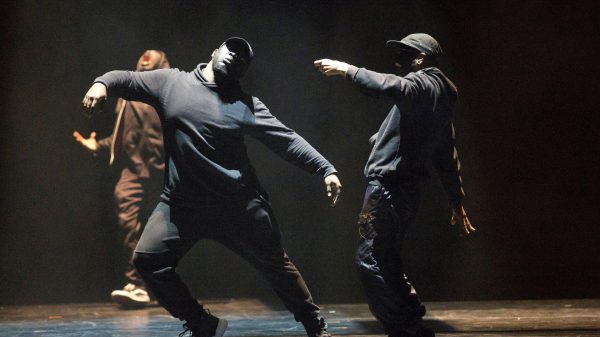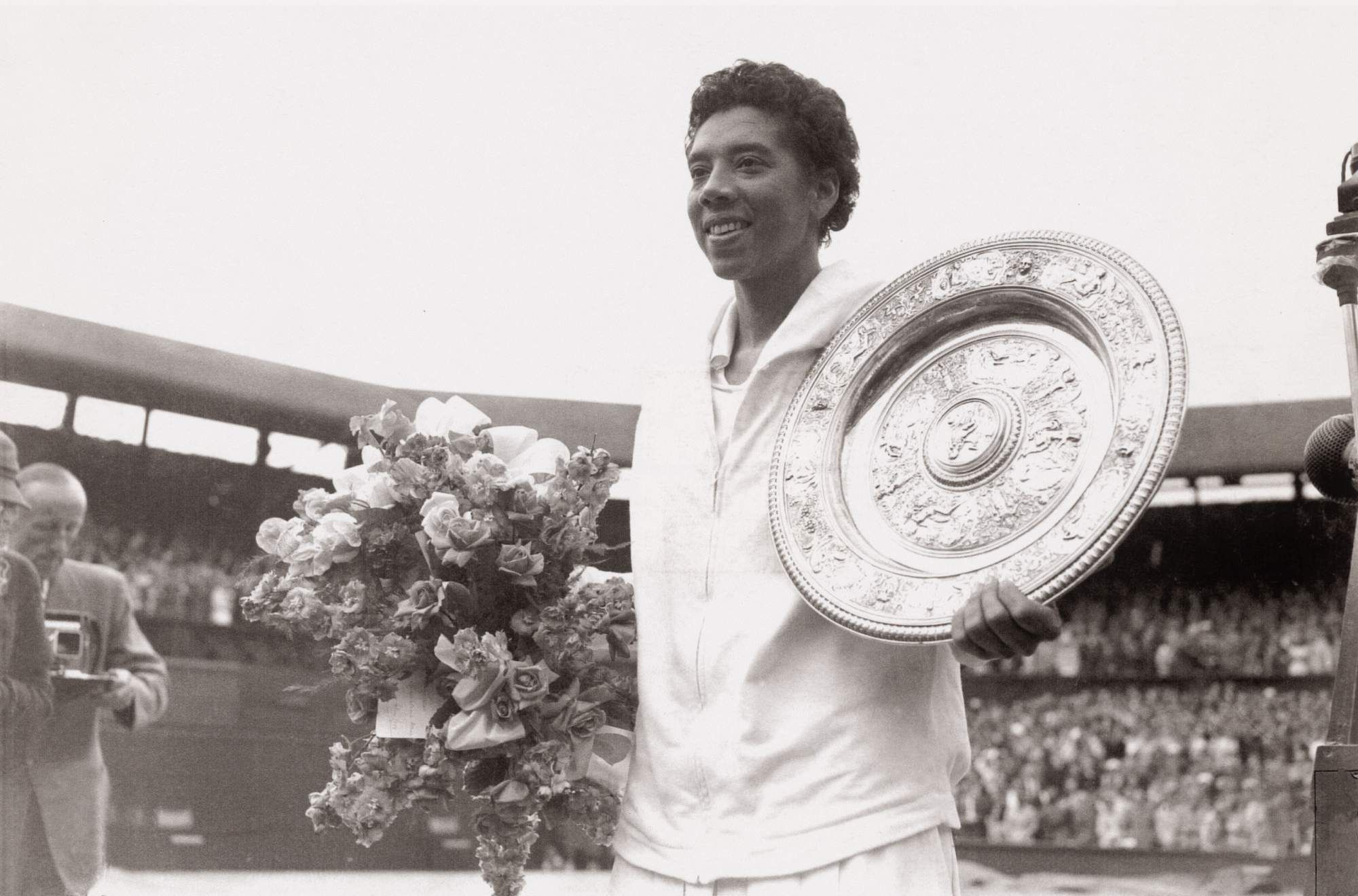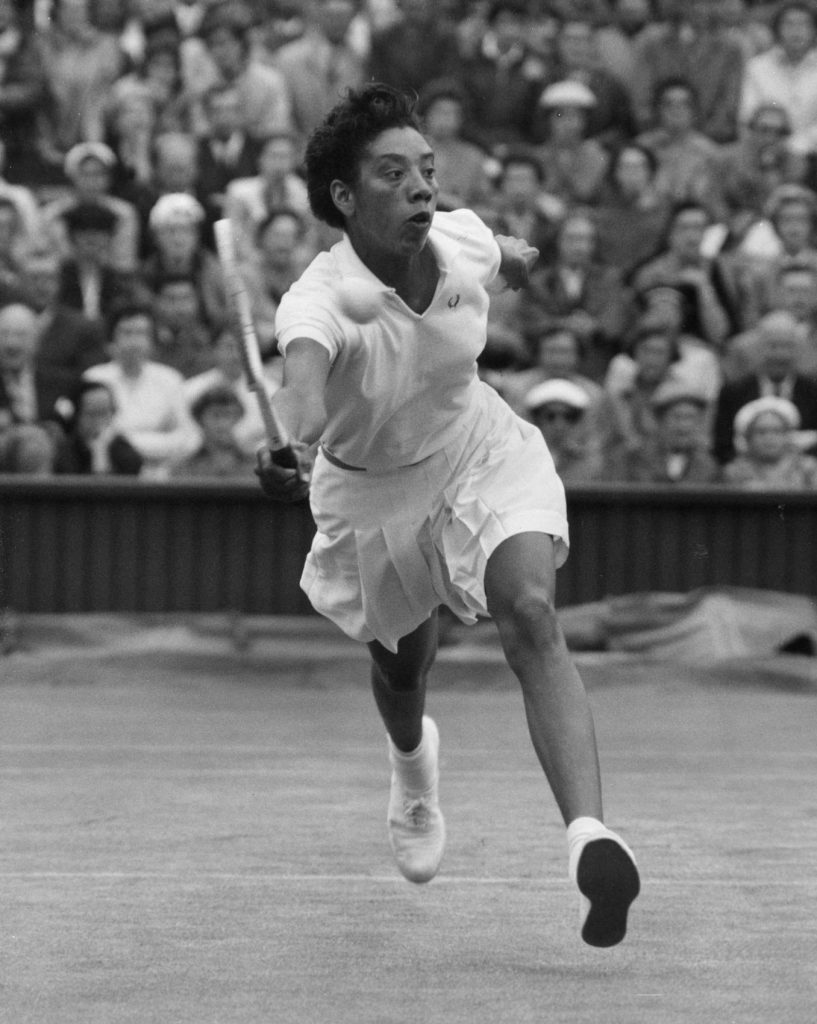Professional tennis and golf player Althea Gibson was a trailblazer in 1950s sport. Her undeniable talent, courage and strength helped her cross many racial barriers, enabling her to become the first black woman to compete in the U.S. National Championships.
Althea Gibson was born in 1927 in South Carolina, but later moved to Harlem where she endured a difficult upbringing as her family struggled to make ends meet. Often missing classes and skipping school, Gibson found joy elsewhere and that was sports – especially paddle tennis. She not only loved it, but she was good at it – so good, she soon made a name for herself at just 12-years-old, New York City’s paddle tennis champion. Little did she know that her fun loving hobby was to become so much more.
In 1941, a school dropout, Gibson was introduced to the Harlem River Tennis Courts. Only a year after playing her first game, she won her first local tournament, sponsored by the American Tennis Association (ATA) catered for black players. She won two more ATA’s in 1944 and 1945 – her skills grew incredibly superb that they couldn’t go unnoticed. Gibson began getting mentored leading to higher skilled competitions. She returned to school and became sponsored by physician and tennis activist, Hubert A. Eaton, where she became the first black woman to play in the USTA’s National Indoor Championships. This assisted her into gaining a full university athletic scholarship. After losing one title in 1946, Gibson skyrocketed with a streak, winning 10 straight championships from 1947 to 1956.
Despite her growing status to an elite level, tennis was still a very white dominated place that could not see past the colour of Gibson’s skin. She was not welcome at many tennis clubs and prohibited to enter premier tournaments – though incredibly talented, she was unable to progress in the way she deserved due to discrimination.
However, an open letter published by former tennis champion Alice Marble gave Gibson a voice she couldn’t use. In the American Lawn Tennis magazine, Marble condemned her sport for refusing a player as gifted as Althea Gibson to compete in the U.S. National Championships. Soon after came a significant moment for not only Gibson, but the entire black community. She was finally invited. At just 23 years old, she made history, as the first African-American tennis player to compete at the U.S. National Championships in 1950 and the first to play at Wimbledon in 1951.
Soon, Gibson was at her peak, finally excelling worldwide. By 1952, she was in the American top ten, moving up to No 7 the following year. From 1955, she began doing international tours that increased her confidence more than ever. But despite her many wins, including 11 Grand Slam events, Gibson was still subject to inevitable racism, such as being denied rooms in hotels. It was a very challenging and strenuous journey, but she came to the realisation: ‘I’m playing tennis to please me, not them,’ she said.
Gibson was the first black person to win the French Championships in 1956, then won Wimbledon and the US championships in 1957 and 1958. A clear symbol of black success, Gibson became the first black woman to appear on the covers of Sports Illustrated and Time.
Although having won 56 national and international singles and doubles titles, Gibson allegedly didn’t make much money from tennis, regardless of sports commentating and advertisements. She had a good run, but soon pushed her passion into golf, becoming the first black woman to join the Ladies Professional Golf Association (LPGA) tour.
Althea Gibson died of respiratory failure in 2003. She paved a way for future black tennis stars such as Serena and Venus Williams, and was acknowledged through many awards such as being inducted into the International Tennis Hall of Fame (1971). Funnily enough, the title of her 1958 autobiography is I Always Wanted to Be Somebody – and she certainly was.
Althea Gibson, born 25 August 1927; died 28 September 2003.


































































